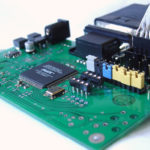A Complete Checklist to Safely Store and Handle Vaccines
A medical facility needs to store preventive medicines, such as vaccines, safely. And that calls for ensuring the right temperature environments while storing them.

To help healthcare facilities store vaccines effectively, we are outlining here a basic vaccine versus storage temperature chart:
Adenovirus Vaccine
These vaccines protect people against the Type 4 and Type 7 Adenovirus. Manufacturers supply the vaccines as 100-count bottles of round, enteric-coated tablets. The bottles should be stored between 2 to 8 degrees C.
Cholera vaccine
Vaxchora is a vaccine for immunization against serogroup 01 cholera. It has an active component and a buffering agent that is diluted with purified water to make a dose of the oral vaccine. It requires a storage temperature of −25 to −15 degrees C.
Dengue Fever Vaccine
Dengvaxia protects people from three types of dengue disease. It comes as a freeze-dried powder and saline diluent, which have to be mixed to make an injectable suspension.
Before the mixing process, the components have to be stored within 2 to 8 degrees C. The injectable suspension should be safely stored at the same temperature for about half an hour before use.
If you cannot use it within 30 minutes, discard it.
Ebola Vaccine
The Ervebo vaccine protects adults from the Zaire Ebola virus. The Merck & Co. manufactured vaccine comes in a frozen state and should remain within -80 to -60 degrees C. It should be thawed at room temperature before administration. If you fail to administer the vaccine, you should keep it at room temperature for four hours before discarding it.
Haemophilus Influenza Type B Vaccine
Vaxelis protects people from diphtheria, pertussis, tetanus, poliomyelitis, hepatitis B, and other invasive diseases associated with Haemophilus Influenza type B. Three doses are necessary for pediatric use.
It comes in single-dose vials and injectable suspension form.
It should be stored between 2 to 8 degrees C, and should never freeze. If the vaccine gets exposed to freezing temperatures, it has to be discarded, according to the guidelines of the Food and Drug Administration.
Hepatitis A and B Vaccine
Twinrix is manufactured by GlaxoSmithKline and protects people against two virulent forms of hepatitis liver disease. It is approved for persons over 18 years. The vaccine comes in single-dose, prefilled syringes. The vaccine needs a storage temperature of 2 to 8 degrees C. If it gets exposed to freezing temperature, discard it.
Human Papillomavirus (HPV) Vaccine
Gardasil 9 protects people from genital warts and cervical, vaginal, vulvar, and anal cancers that are caused by several strains of the HPV virus. Manufactured by Made by Merck & Co, Gardasil 9 comes as pre-filled vials.
The vaccine needs protection from light, needs a storage temperature of 2 to 8 degrees C. The vaccine can remain outside cold storage for not more than 72 hours, if exceeded, it gets damaged.
Japanese Encephalitis Vaccine
Ixiaro can be used in people over two months. People need two doses of the vaccine, one month apart. The vaccine comes as a suspension in prefilled syringes. The vaccine requires a storage temperature of 2 to 8 degrees C at all times. During storage, a white precipitate may occur, which is normal. If the vaccine is frozen, it will get damaged.
Meningococcal ACWY Vaccine
Menactra is an FDA-approved vaccine to protect people against four forms of meningococcal disease. The vaccine can be used in people between 2 months to 55 years of age. The vaccine comes in single-dose vials.
It needs a storage temperature of 2 to 8 degrees C. If it freezes, it will get damaged, according to the manufacturer Sanofi Pasteur Inc.
Monkeypox Vaccine
ACAM2000 protects people against smallpox and monkeypox viruses. The vaccine is not administered through injection, instead, it is delivered through a procedure called percutaneous scarification. AAM2000 comes as a freeze-dried powder. It should be mixed with a glycerine-phenol diluent before administering.
The manufacturer, Emergent Biosolutions, does not mention a specific temperature range. It says that it has to be kept in cold storage until reconstitution.
Usually, reconstituted vaccines can be used within six to eight hours if kept at room temperature between 20 to 25 degrees C. Such vaccines can also be refrigerated up to 30 days between 2 to 8 degrees C. The vaccines become unfit for use and should be discarded as a dangerous material, according to the manufacturer.
Tetanus Vaccine
Boostrix is a tetanus vaccine that is made by GlaxoSmithKline. It is an injectable vaccine to provide active booster immunization against diphtheria, pertussis, and tetanus in persons over 10 years of age. The vaccine comes as disposable, single-dose vials and syringes. Boostrix should be stored between 2 to 8 degrees C. If it gets exposed to freezing temperatures, it will get damaged and should be discarded.
How to Choose a Vaccine Refrigerator?
Vaccine refrigerators and freezers are critical equipment of a medical facility. You might tend to think that choosing such a cold storage unit is simple. Just go by the looks and the highest storage capacity.
But, that is not the right approach. There are many things to consider before you purchase one.
Here goes what you should consider:
Temperature Range
One of the main considerations in choosing the right cold storage is the temperature range, which is dictated by the items you will store in the unit.
Depending on your need, you can choose a general-purpose refrigerator(32 to 50 degrees F), freezer(0 to -22 degrees F), ultra-low temperature freezer(-30 to -40 degrees F), or cryogenic freezer (up to -238 degrees F).
Assess your requirement before you make the final decision.
Size & Capacity
The capacity of your prospective cold storage unit for your healthcare facility is an important aspect to consider before you make the purchase.
You should make sure that the unit you choose should be able to hold your entire vaccine stock. So, assess the volume of stock you need to store in the cold storage unit.
While looking at different cold storage units, examine the external dimensions to figure out whether your facility can accommodate the unit.
While large research institutes, hospitals, and laboratories can require larger units, mid-sized facilities will require smaller units.
Therefore, assess your available floor space before choosing the size of your prospective cold storage unit.
Accessibility
It is another crucial factor to consider while choosing a cold storage unit for your medical facility.
While evaluating different units, figure out whether your staff will be able to use your prospective unit with ease.
Take into consideration the space constraints in your facility. Ensure that your staff can open the unit’s door without interfering with anything else.
Ventilation
Ventilation requirements in medical freezers and refrigerators differ from model to model. As such, while evaluating different units, ask the seller about the ventilation needs of the respective units.
You need to make sure that the model you choose can properly ventilate in your facility without any restrictions.
Usually, air ventilation occurs in and out of the unit through the back, towards the top. For a large ventilation area, the unit will be more energy efficient.
Also, determine whether your staff can clean and maintain the ventilation space. If you find any ventilation restrictions in your facility, ask the supplier if they can provide custom ventilation.
Monitoring Systems
Your medical facility might store some items that have to not only keep cold but also maintain a particular temperature range.
If the temperature goes out of the prescribed range, the items will get damaged and become unfit for use.
So, there has to be a mechanism to monitor the temperature and ensure that it does not go out of the necessary range.
While evaluating a cold storage unit, look for temperature monitoring features, like a digital logger and temperature tracking screen. Also, check for a temperature alarm to send out alerts if the temperature goes out of the set range.
Modern vaccine refrigerators and freezers come with backup battery systems, digital locks, and chart recorders, ensuring the unit you choose has these features.

















